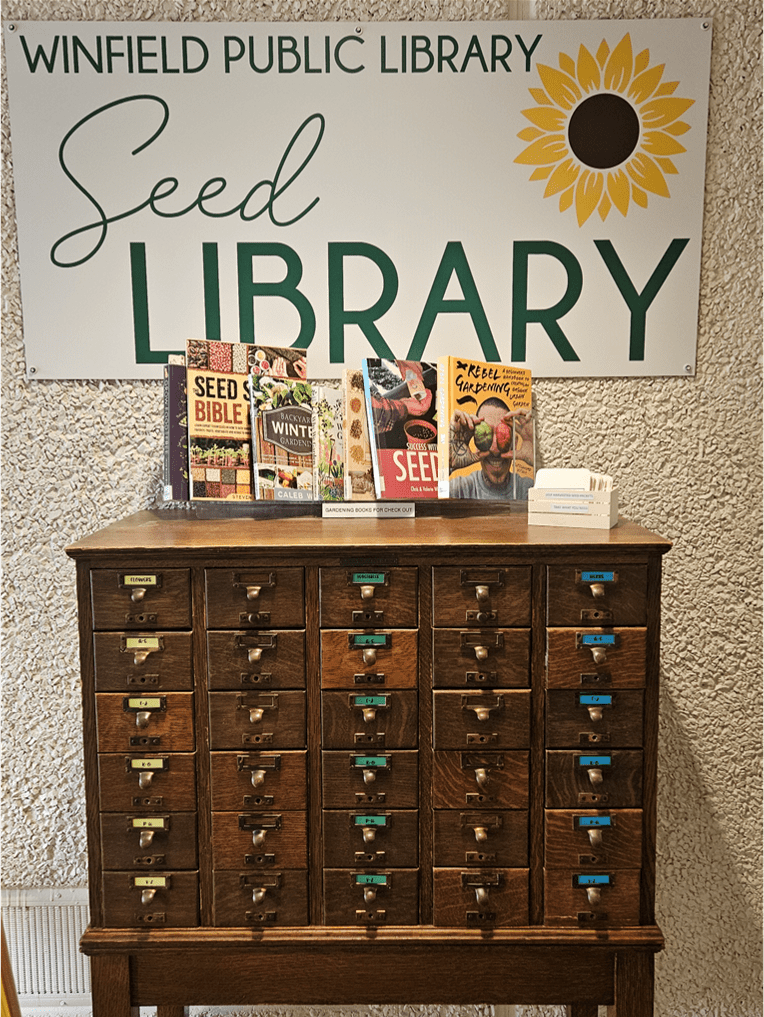Just like a traditional library, a seed library shares the seeds from its collection with the community.
Our seed library is housed in the back entry of the library and has flower, vegetable and herb seeds.
We accept donated seeds, homegrown or packaged. If you wish to bring your own seeds to share (not required), the library will provide envelopes and blank labels.
The seeds provided by the Library and contributors allow you to grow the freshest and healthiest food possible. Please take only what you need—we want to make sure there is plenty to go around for everyone to enjoy their own homegrown food. Happy Growing!

Mission
Planting from seed is a fulfilling adventure! Through the seed library, we hope to:
Spark interest in learning how to garden and grow food. Anyone can do it!
Foster an appreciation and enjoyment of nature, from soil organisms to plants to bees and birds.
Encourage food self-sufficiency, both personally (growing your own food) as well as in community (harvesting and giving back organically-grown seeds to the seed library to further a sustainable cycle).
Help preserve biodiversity, and increase populations of native pollinators (birds, hummingbirds, butterflies, bees, and insects) by planting native flowering plants that provide nectar and pollen, and refuge.
Increase equity in our community—access to free seeds increases food security and food justice.
Improve health—growing food in healthy soil can provide more nutrient-rich food than commercial farming.
Respond to climate change—there’s nothing more local than harvesting from your own yard or balcony.

Contact:
Carla Donley, Head of Circulation
Winfield Public Library
(620) 221-4470
cdonley@wpl.org
FAQ:
What seeds are best for seed saving?
Tomatoes, peppers, beans and peas are good choices for seed saving. They have flowers that are self-pollinating and seeds that require little or no special treatment before storage. Seeds from biennial crops such as carrots or beets are harder to save since the plants need two growing seasons to set seed.
How can a gardener save their own seeds?
It is essential to keep seeds dry and cool so that they will remain viable until the next spring. Ideally, they should be stored in tightly sealed glass containers. Individual varieties or different types of seeds can be placed inside paper packets and then packed together inside of a larger glass container.
How long can seeds be stored?
Vegetable and flower seeds may be kept for one year without appreciable decrease in germination. Storage may be extended to 10 or more years under proper conditions. Seed moisture and storage temperature are the most important factors in determining how long seeds can be stored.
